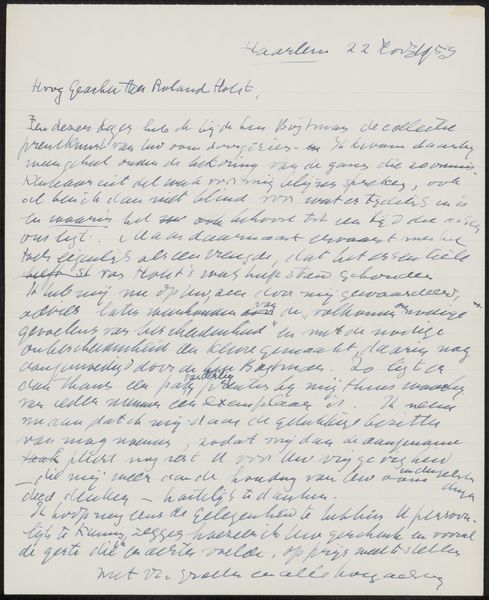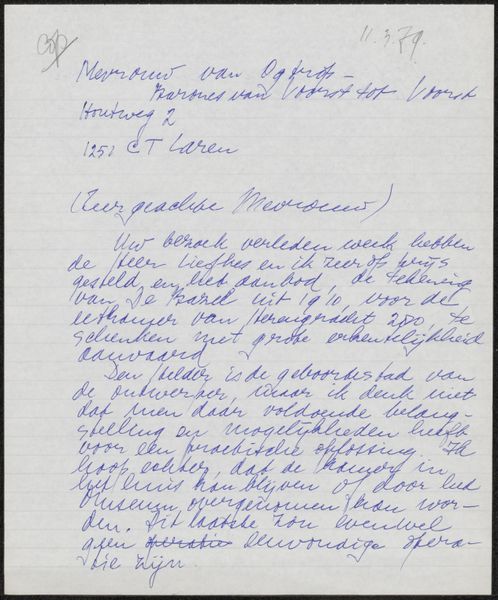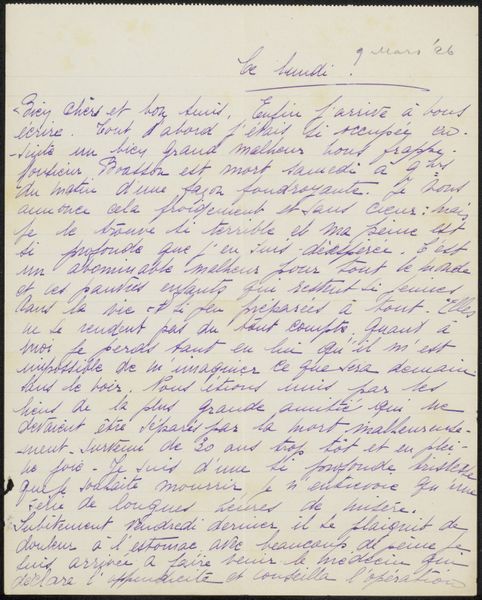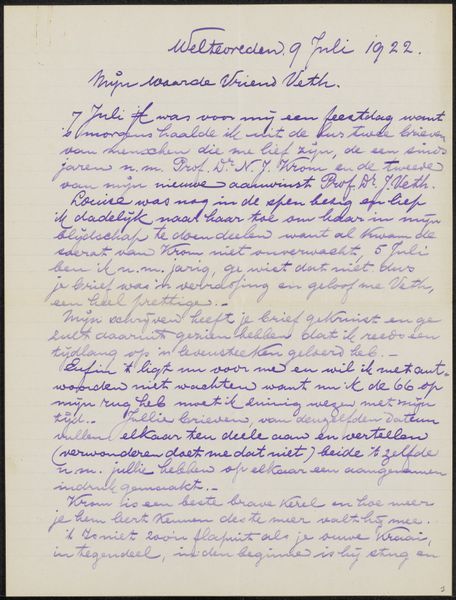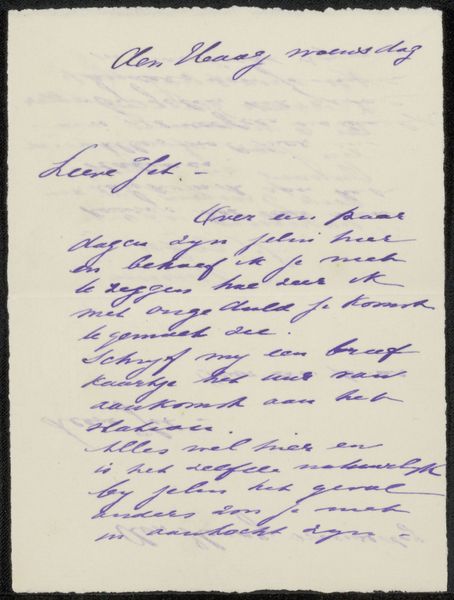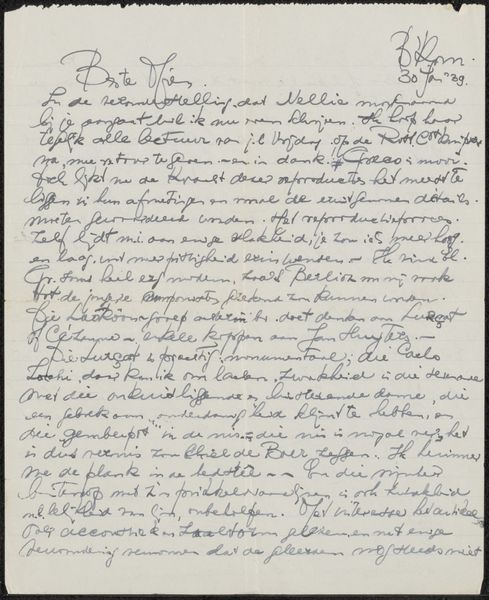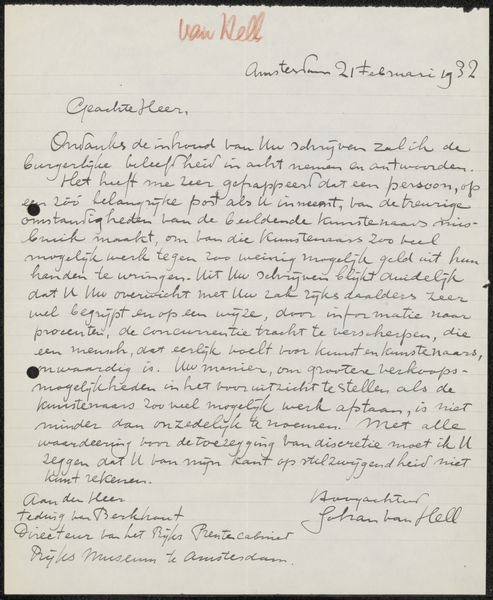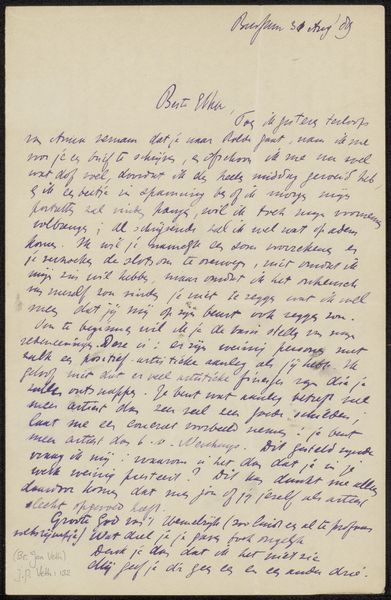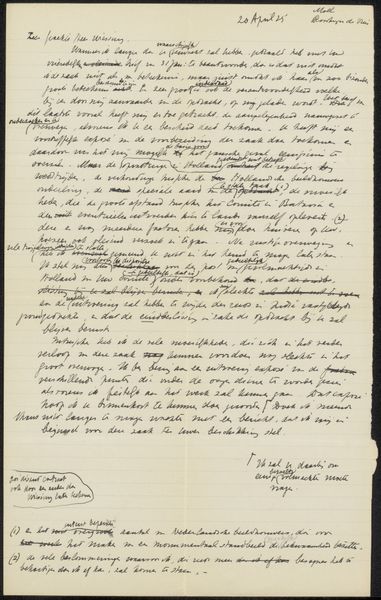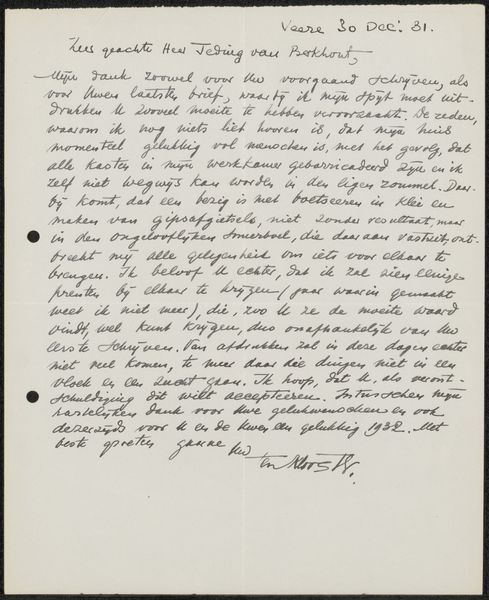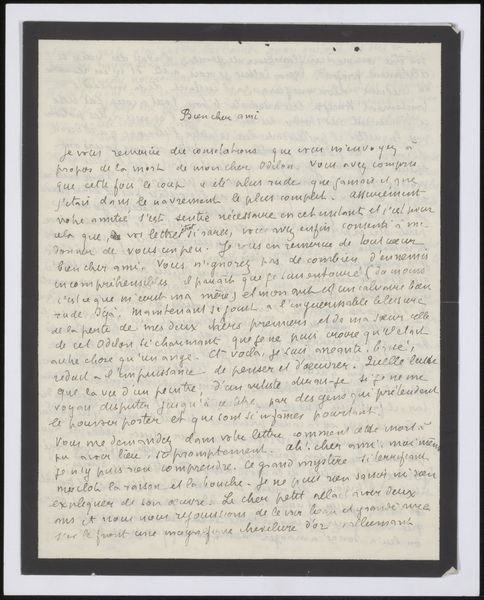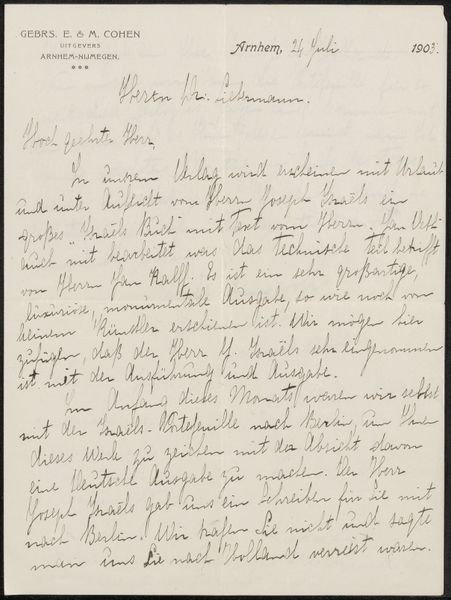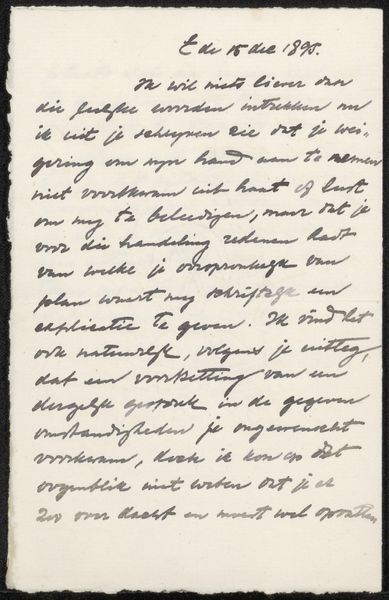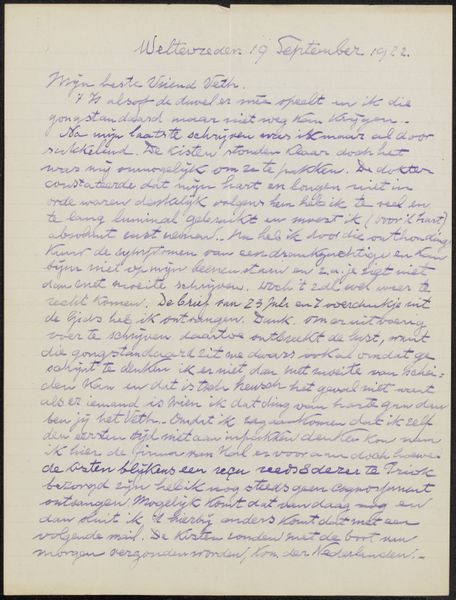
drawing, paper, ink, pen
#
drawing
#
hand drawn type
#
paper
#
ink
#
pen work
#
pen
#
modernism
#
calligraphy
Copyright: Rijks Museum: Open Domain
Editor: Here we have "Brief aan Jan Veth," possibly from 1923, by Jean Pierre Moquette. It’s a letter, written in ink on paper. The handwriting is quite striking; it almost feels like the words are dancing on the page. What draws your eye in this piece? Curator: I see a compelling record of production. The visible labor involved – the artist’s hand meticulously crafting each word with pen and ink – transforms the act of writing into a form of visual art. Notice how the choice of materials, readily available and relatively inexpensive, democratizes artistic creation. This challenges notions of art as a luxury. Editor: So you're focusing on the accessibility of the materials? Curator: Precisely! And also, the act of handwriting itself becomes a performance. Consider the social context: writing a letter was a primary form of communication, a direct means of engaging with another person. Moquette's use of calligraphy elevates a mundane task into an artistic expression, imbuing the text with emotion and personality absent in mass-produced print. It blurs boundaries between high art and daily life. Do you think the constraints of pen and paper impacted the content of the letter? Editor: That’s interesting! It seems like the directness of the medium forces a kind of raw honesty. Curator: Indeed. We witness Moquette's process and his engagement with materials, all shaped by the act of interpersonal communication. Seeing the handwritten process pushes the art beyond just being a historical artifact or biographical resource. Editor: It really changes my perspective on the letter—it’s not just information, but a physical record of an action. Thanks, I hadn’t thought about the materials themselves telling the story.
Comments
No comments
Be the first to comment and join the conversation on the ultimate creative platform.
